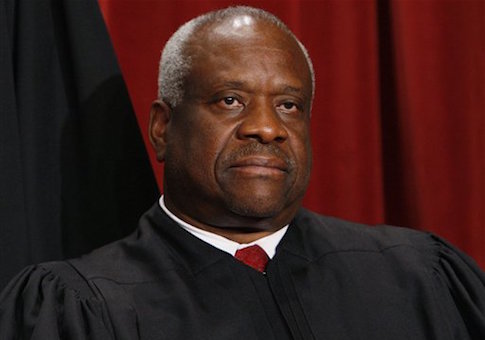More than 15,000 people have signed a petition calling for the Smithsonian's recently opened National Museum of African American History and Culture to include Supreme Court Justice Clarence Thomas.
The StandUnited petition asks the museum's director, Lonnie Bunch III, not to exclude Thomas because he holds conservative views, the Washington Times reported Wednesday.
"Curators at the museum singled out Thomas due to his unique views on race and his conservative thought that the federal government is the greatest threat to our individual liberties," the petition says. "The museum highlights people of less noble endeavors, and it is unfathomable to think the curators were not open-minded enough to include all historically significant African Americans, no matter their political beliefs."
The petition has 15,834 signatures as of Thursday morning.
"The petition was started by a petitioner who just saw that there were really prominent black conservatives who were left out of this great new museum here in D.C.," Angela Mirabito, senior campaign organizer for StandUnited, told the Washington Times. "I talked to her, and she really saw that that museum should be celebrating people who have made fabulous contributions, and Justice Thomas is one of them."
Sen. Ted Cruz (R., Texas) wrote a letter in December to Bunch and senior officials at the Smithsonian Institution in which he called omitting Thomas a "mistake."
"As much as I am grateful for the museum and its efforts to preserve and promote the indispensable, yet oft-neglected, contributions of African Americans to the collective history of our nation, I believe the museum has made a mistake by omitting the enormous legacy and impact of Justice Thomas, as well as his compelling background," Cruz wrote.
Thomas is mentioned in the museum, but not for his accomplishments as a Supreme Court justice.
"Thomas, the second African American to sit on the high court, is only nodded to briefly in the museum as part of an exhibit showcasing Anita Hill, who accused Thomas of sexual harassment in the early 1990s," the Washington Free Beacon reported in December.
Notable achievements of Thomas include receiving the Francis Boyer Award, once the highest honor given by the American Enterprise Institute.
Thomas grew up during the Jim Crow era in a poverty stricken area of Georgia. He ended up going to Yale Law School and became chairman of the Equal Employment Opportunity Commission. He was nominated to the Supreme Court by former President George H.W. Bush in 1991.
